Interview series: Kulin asks...
"We are not yet at the point in Germany of allowing information to flow freely"
He spent almost 13 years at gematik, the German “Digital Health Agency,” and now works as a strategic consultant. Accordingly, Mark Langguth once again looks at the KHZG from a completely different, rather indirect perspective – and thus brings a new perspective on funding than the previous interviewees in the interview series had.
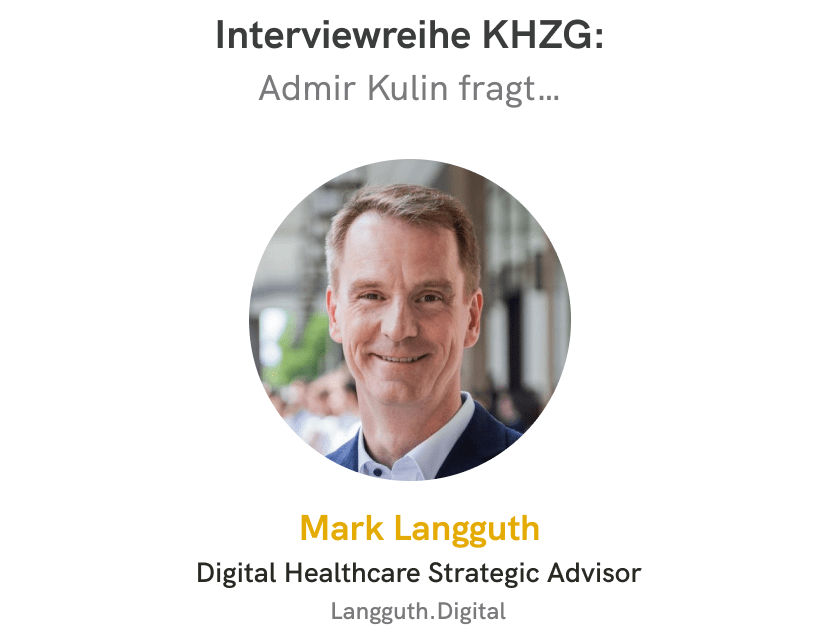
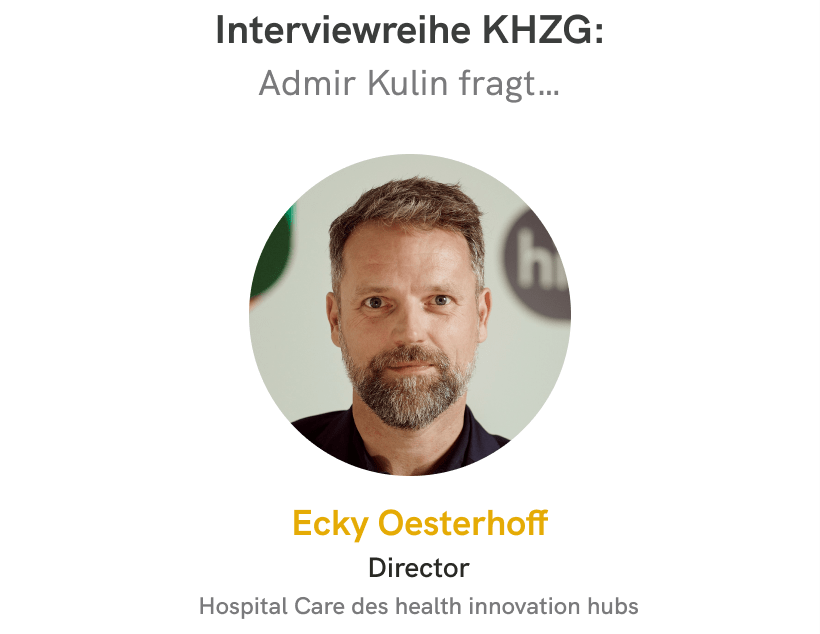
"The level of digitization in German hospitals is worse than in the rest of Europe"
The Federal Minister of Health affectionately calls his colleagues at the health innovation hub “his truffle pigs” because they track down trends and innovations for the German healthcare system. Ecky Oesterhoff is responsible there specifically for clinics and hospitals and puts the KHZG into an overall context for once.
"Digital tools must first prove their added value"
Jared Sebhatu, CEO of digital health transformation eG, is already looking forward to the KHZG creating the basis for the digitization of healthcare, so that he and his team can devote themselves to truly innovative topics.
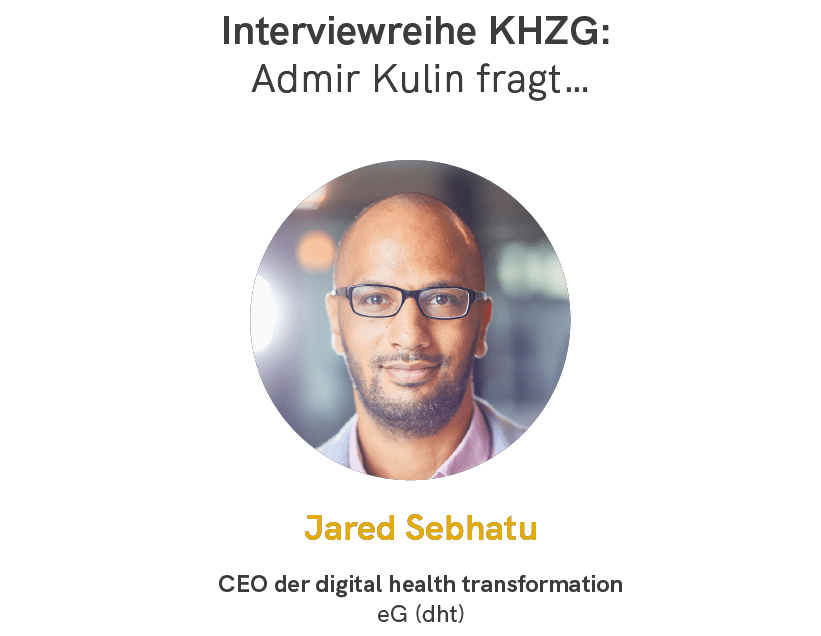
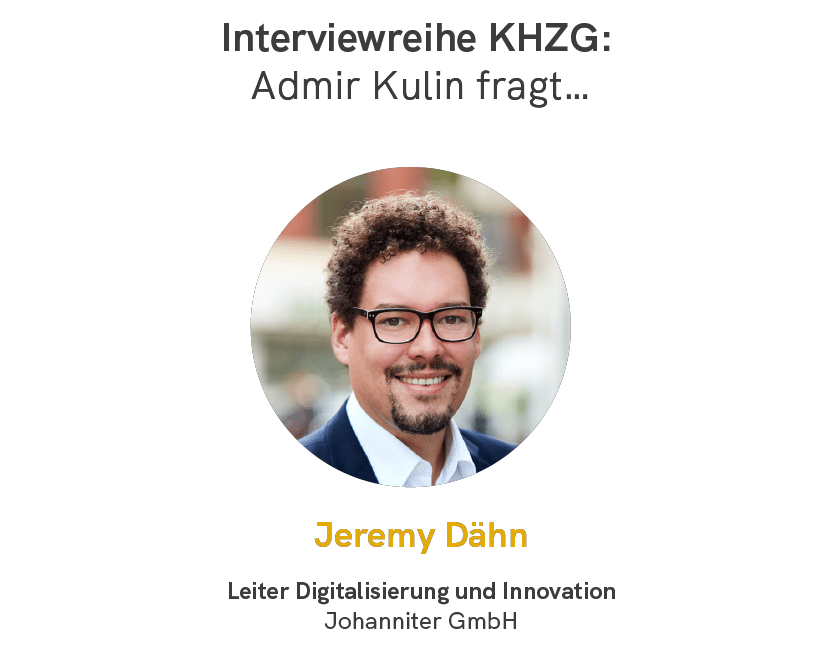
Who is actually the customer in the hospital?
For Jeremy Dähn, Head of Digitalization and Innovation at Johanniter GmbH, this question is not easy to answer from a hospital’s perspective. Nevertheless, he tries to answer it and emphasizes the importance of the focus that the legislator places on the patient with the KHZG.
No medicine without a patient
In our highly efficient, highly specialized healthcare system, we often forget what it’s really all about at its core: providing high-quality care to patients. With digitization and the KHZG, we now have the chance to redesign processes. And Mina Luetkens, with her Patients4Digital initiative, wants to ensure that patients can take a self-determined and sovereign role in this process.
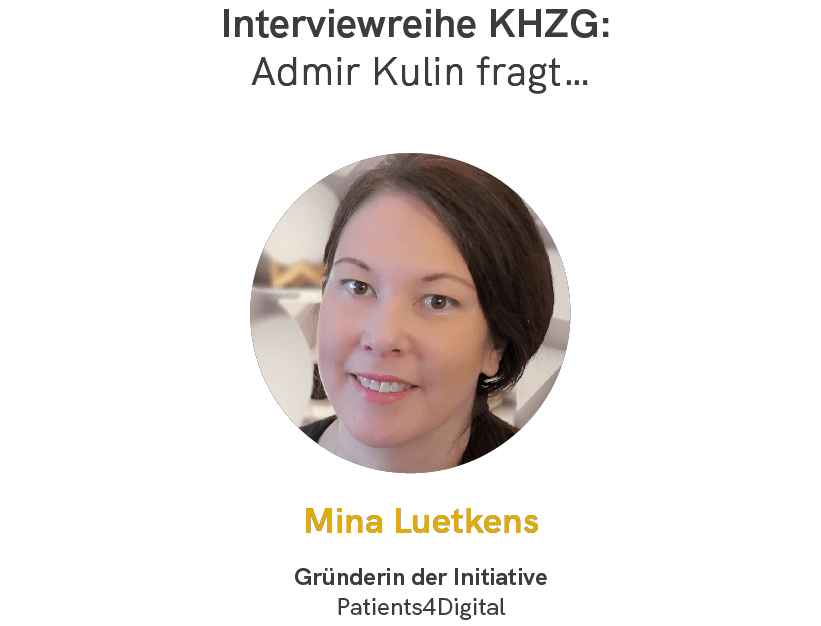

"With the KHZG, the federal government is showing classic investor behavior."
From the patient experience, to the difficult topic of data protection, to the integration of billing institutions into the digital processes of clinics – the conversation with adesso CEO Stefan Riedel is probably what is generally called an “all-rounder”, a positive one of course.
"Other countries show: Patients benefit from high level of digitization"
For Anke Diehl, MD, of Essen University Hospital, digitization means bringing different opinions and disciplines to the table. And the KHZG can now be the first step in this direction for many hospitals.
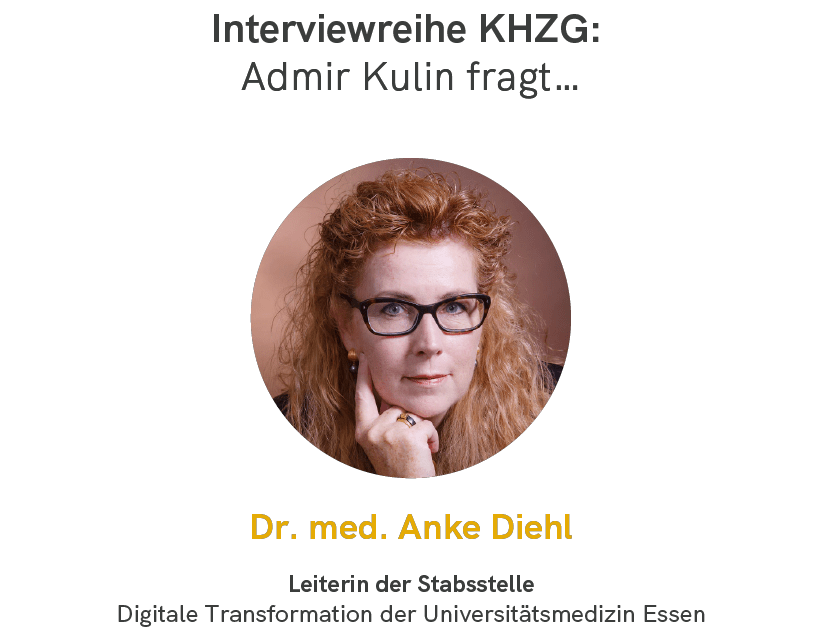
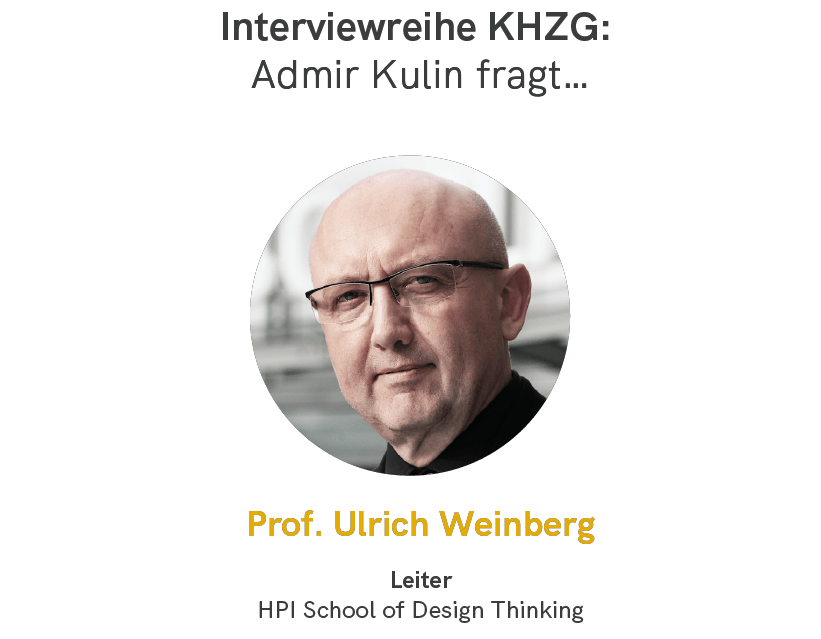
"There is still a Brockhaus structure in our heads".
Digitization means rethinking processes. But this is not always easy in practice. In an interview, Prof. Uli Weinberg reveals how design thinking approaches can also help the healthcare sector to master the challenges of digital transformation.
"Germany is now actually taking the digitization of healthcare seriously"
Digitization should never be an IT project, but always a hospital project – this is the key advice that Peter Gocke, MD, head of the Digital Transformation Unit at Berlin’s Charité Hospital, gives to others responsible for implementing the KHZG.
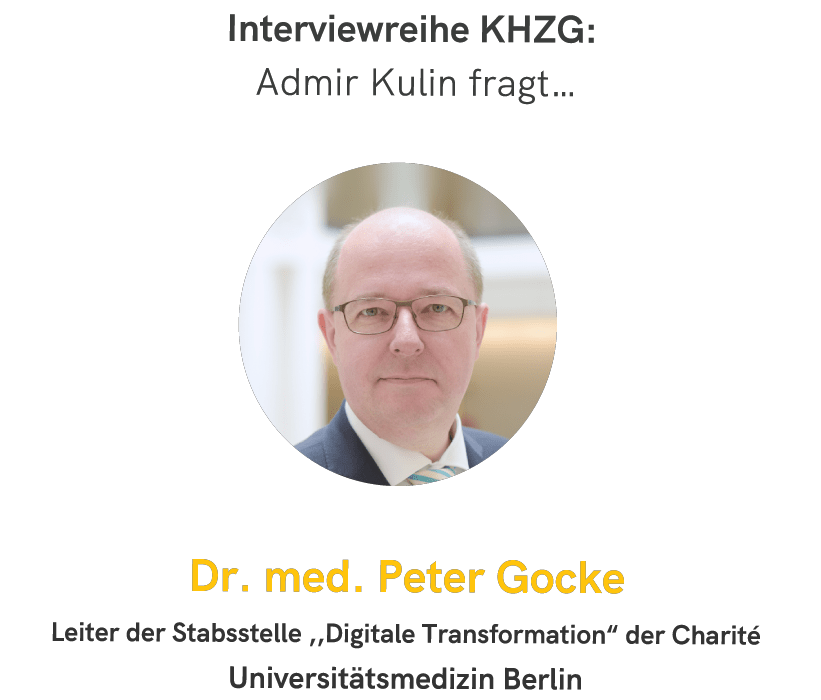

"We need a holistic digitization strategy for the entire healthcare sector"
Olaf Dörge of Cerner is convinced that only visible and measurable added value will bring about change in the long term. But the financing of innovations and technical progress must also be secured on a long-term and sustainable basis.
"Too many hospitals don't have a digital strategy"
From my point of view, the KHZG is an incredible opportunity, because digitization in the healthcare sector has been very fragmented up to now. This is primarily due to the fact that projects were primarily implemented that either had a clear return on investment or were mandatory due to legislative requirements. So far, no attention has been paid to the big picture or the IT infrastructure. And that is precisely what the KHZG can address.
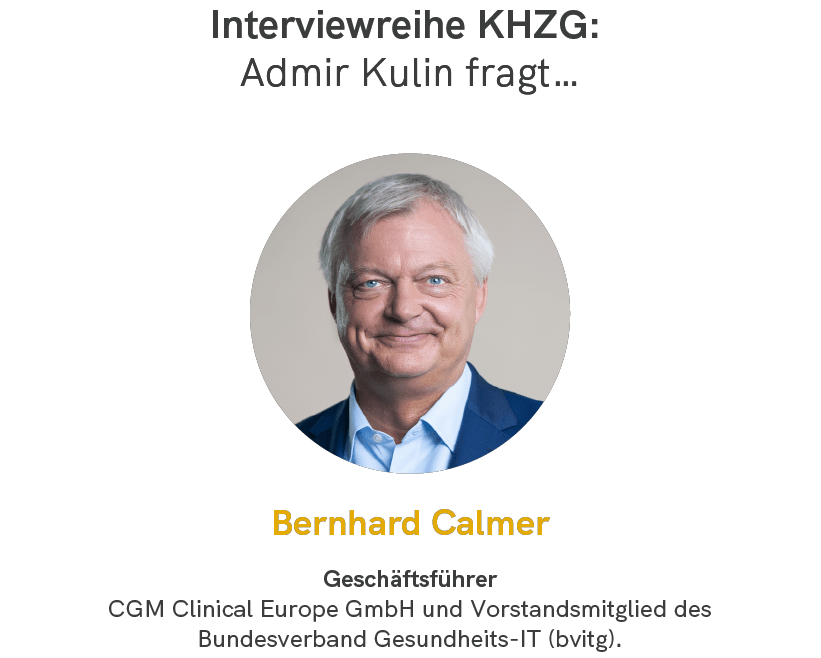
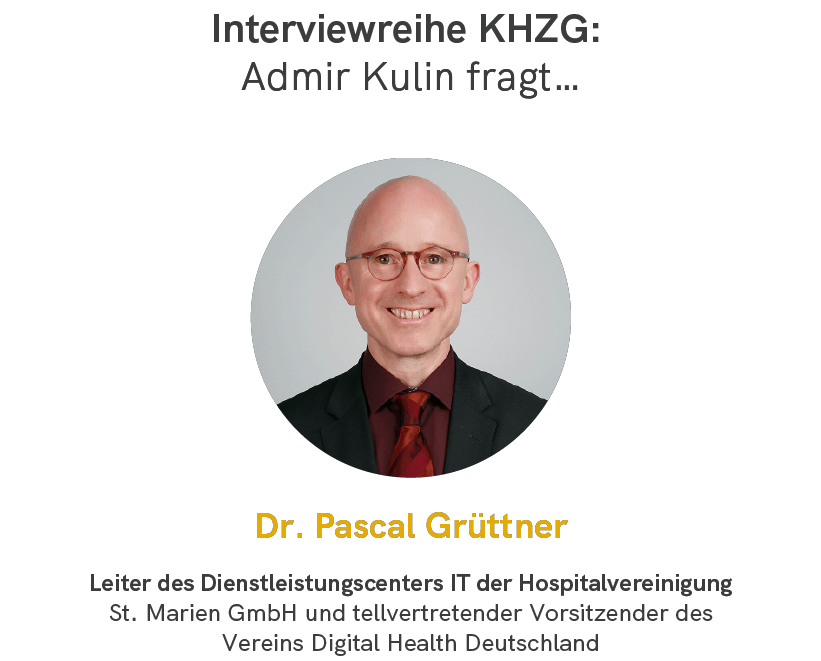
"You can currently sense a certain gold-rush mood".
There’s no question that the KHZG brings a digitization boost for German hospitals – but not without challenges. And my interlocutor Dr. Pascal Grüttner, Head of the IT Service Center at Hospitalvereinigung St. Marien GmbH and Vice Chairman of the Digital Health Germany association, is very realistic about them.
